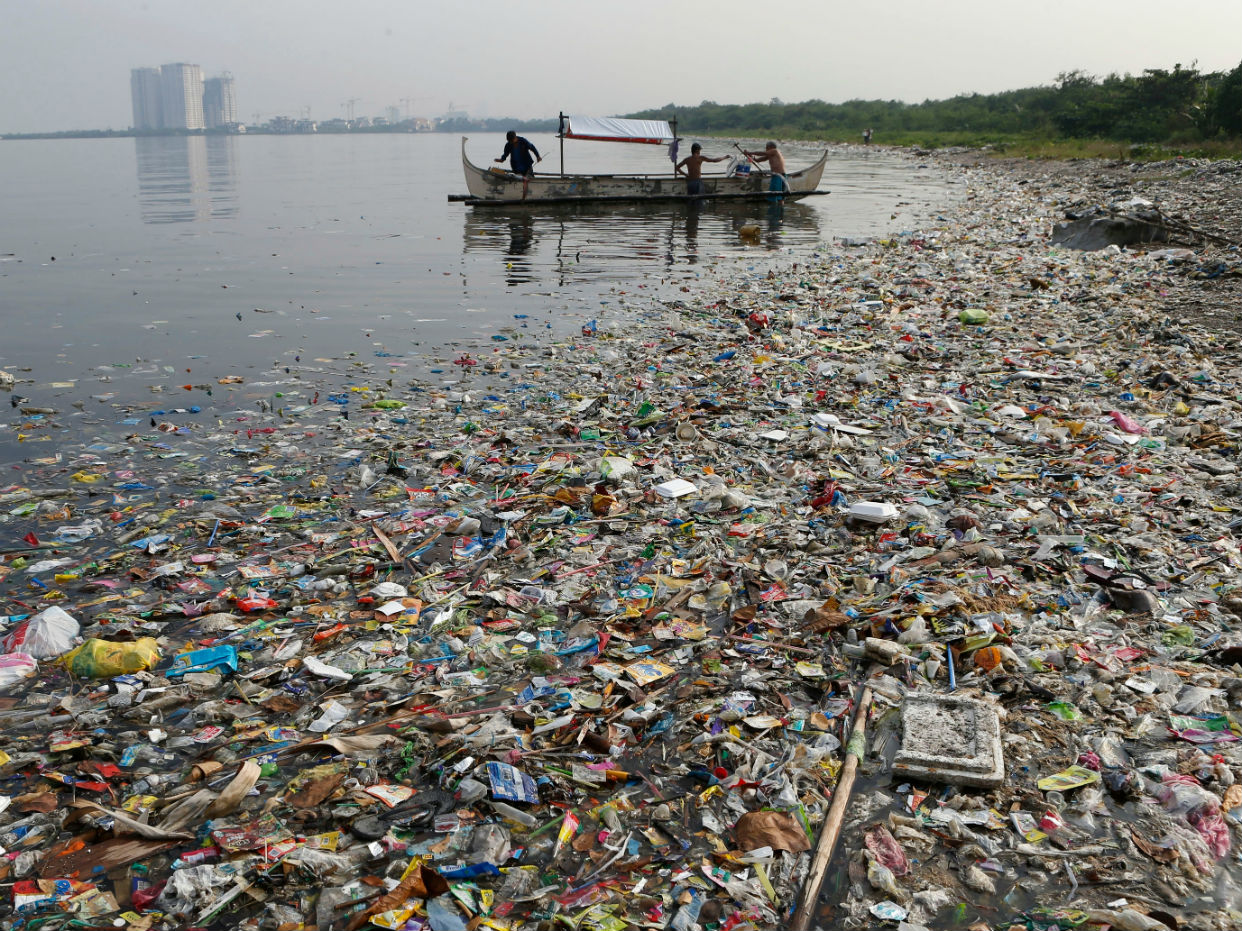By 2050, the world's oceans will contain more plastic than fish
One third of all plastic ends up in the world's ecosystems, but what can we do?

A free daily email with the biggest news stories of the day – and the best features from TheWeek.com
You are now subscribed
Your newsletter sign-up was successful
If we carry on producing plastic – and failing to dispose of it properly – at predicted rates, the plastic waste in the ocean will weigh more than all the world's fish by 2050, says a report from the Ellen MacArthur Foundation.
By then, it predicts, we'll be making more than three times as much plastic as we did in 2014 and one third of it will end up in the world's ecosystems.
Why is this happening?
The Week
Escape your echo chamber. Get the facts behind the news, plus analysis from multiple perspectives.

Sign up for The Week's Free Newsletters
From our morning news briefing to a weekly Good News Newsletter, get the best of The Week delivered directly to your inbox.
From our morning news briefing to a weekly Good News Newsletter, get the best of The Week delivered directly to your inbox.
Based on interviews with more than 180 experts in the field, the report found that most plastic packaging is used only once before being discarded. Eight million tons of it ends up in the ocean every year - or "five bags filled with plastic for every foot of coastline in the world", says Jenna Jambeck, of the University of Georgia.
What will the impact be?
A carelessly discarded bag can break down in the sea, especially in warmer waters, but the process releases toxic chemicals that may be digested by fish and end up in the human food chain, says The Guardian.
"The fish you may count on to eat is ingesting plastic, getting entangled in it and dying from having stomachs full of it," said Dianna Cohen, the chief executive of the Plastic Pollution Coalition.
A free daily email with the biggest news stories of the day – and the best features from TheWeek.com
What can we do?
"One of the biggest problems [to] focus on is single use and disposable plastic," Cohen says. She also calls on governments to take steps to reduce the waste by forcing producers to take back the plastic used in packaging.
The report also suggests that plastics should be both recyclable and compostable – currently, they are either one or the other.
According to Fortune, attempts to increase global recycling efforts could face a major hurdle in the form of low oil prices. With the collapse of global oil prices, plastic recycling becomes less profitable and the magazine reports that large recycling firms in the US, such Waste Management, have reported steep declines in revenue from their operations.
-
 What to know before filing your own taxes for the first time
What to know before filing your own taxes for the first timethe explainer Tackle this financial milestone with confidence
-
 The biggest box office flops of the 21st century
The biggest box office flops of the 21st centuryin depth Unnecessary remakes and turgid, expensive CGI-fests highlight this list of these most notorious box-office losers
-
 The 10 most infamous abductions in modern history
The 10 most infamous abductions in modern historyin depth The taking of Savannah Guthrie’s mother, Nancy, is the latest in a long string of high-profile kidnappings
-
 Epstein files topple law CEO, roil UK government
Epstein files topple law CEO, roil UK governmentSpeed Read Peter Mandelson, Britain’s former ambassador to the US, is caught up in the scandal
-
 Iran and US prepare to meet after skirmishes
Iran and US prepare to meet after skirmishesSpeed Read The incident comes amid heightened tensions in the Middle East
-
 Israel retrieves final hostage’s body from Gaza
Israel retrieves final hostage’s body from GazaSpeed Read The 24-year-old police officer was killed during the initial Hamas attack
-
 China’s Xi targets top general in growing purge
China’s Xi targets top general in growing purgeSpeed Read Zhang Youxia is being investigated over ‘grave violations’ of the law
-
 Panama and Canada are negotiating over a crucial copper mine
Panama and Canada are negotiating over a crucial copper mineIn the Spotlight Panama is set to make a final decision on the mine this summer
-
 Why Greenland’s natural resources are nearly impossible to mine
Why Greenland’s natural resources are nearly impossible to mineThe Explainer The country’s natural landscape makes the task extremely difficult
-
 Iran cuts internet as protests escalate
Iran cuts internet as protests escalateSpeed Reada Government buildings across the country have been set on fire
-
 US nabs ‘shadow’ tanker claimed by Russia
US nabs ‘shadow’ tanker claimed by RussiaSpeed Read The ship was one of two vessels seized by the US military